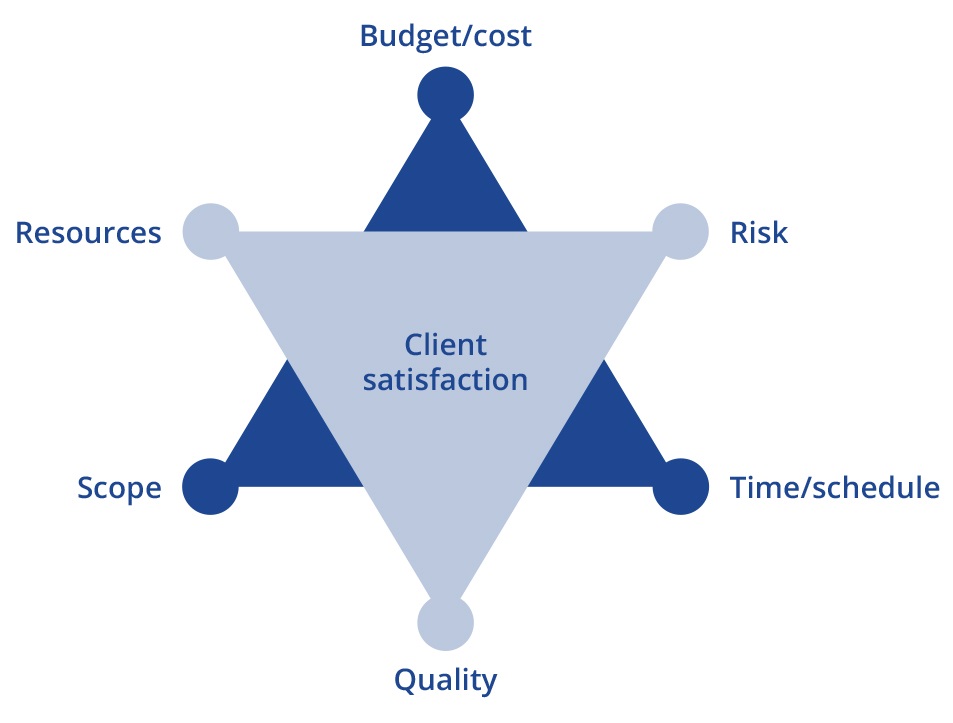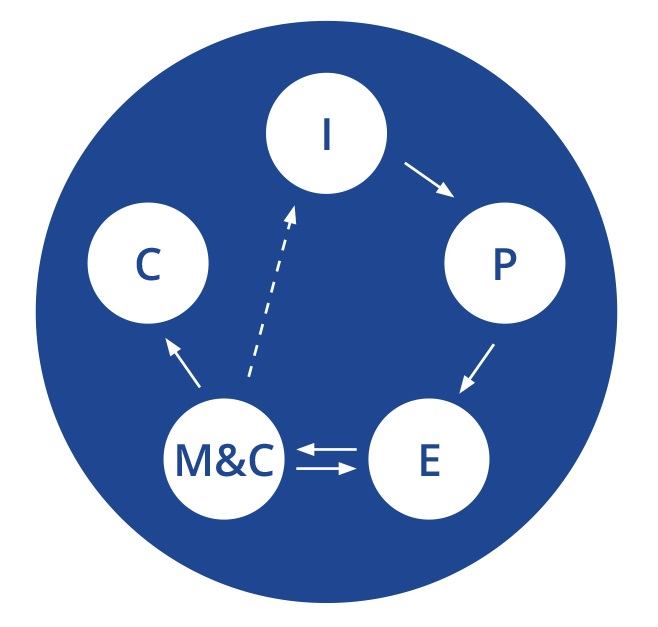
The broad construction sector in Portugal – comprising construction, manufacturing, real estate and architectural and engineering activities – amounts to around €30bn in annual turnover. The sector is one of the most important drivers of the Portuguese economy, accounting for more than 15% of GDP, more than sectors such as tourism, retail and finance. It also represents almost 50% of the country’s total investment and about 10% of total employment.
Real estate investment, to a great extent dominated by international investors that account for more than 50% of total investment in real estate assets, has meant an increasing demand for construction work. Significant investment in transport and infrastructure projects is also anticipated over the coming years. Many of these projects are large scale and complex or high-risk, requiring skilled management. To meet this increasing demand and satisfy all required conditions, the presence of firms and individuals that offer a full range of project and construction management services has grown significantly in recent years.
Nevertheless, construction is a highly fragmented industry; more than 99% of businesses are microenterprises or SMEs with relatively low profit margins, quality and safety issues, a high rate of low-skilled labour, and a low level of innovation and development that, when undertaken, often proves fruitless. In order to both succeed in the market and drive it forward, Portuguese construction companies must enhance their value proposition by adopting differentiation strategies centred on meaningful, effective and sustainable innovation and development. Investment, training and qualifications are all required to do this.
In light of foreign investment and in order to ensure satisfactory project completion, the tendency, for the most part, has been for clients to seek integrated project management solutions using local expertise and centred on the project constraints identified in the project management double triangle.
"The presence of firms and individuals that offer a full range of project and construction management services has grown significantly in recent years"
It’s imperative that procurement costs and contracts are as accurate as possible, helping investors mitigate investment risk. Cost planning and commercial management advice, when employed from inception through to post-completion, helps ensure value for money and that projects come in on budget. This has been increasingly valued by investors, but the lack of complete and effective integrated solutions sometimes requires specialized and certified expertise through independent entities to provide this planning and management advice.
The importance of risk management is also growing apace, with clients requiring formal risk identification and analysis including the definition of project controls which mitigate or manage the identified risks in line with investors’ risk appetite.
Project and construction management consultancy services are usually provided by corporate entities and employed for time-based or term/framework contracts.

Gaps in the management of the project lifecycle
By definition, project managers should oversee activities across the full duration of a project. In Portugal, however, project management engagements don’t tend to encompass the full range of services over the project lifetime. Typically, project managers are rarely involved at the business case stage. Instead they play a major part in the pre-construction phase, namely in the tendering and appointment of consultants or contractors, and, to some extent, in the project coordination and value engineering. During the construction phase, the focus is on monitoring and controlling execution as planned in terms of cost, quality, time, environmental aspects, health and safety. Post-construction, following the provisional acceptance of the work, they are rarely involved.
Not applying project management services evenly throughout the project life cycle results in continuity gaps and prevents the application of homogenised processes across all project stages, such as the one defined by the Project Management Institute (PMI). This frequently leads to adaptive life cycles – that is, life cycles with fixed time and cost, but for which the scope is refined as the project progresses.
“In Portugal, project management engagements don’t tend to encompass the full range of services over the project lifetime”
There are no widely-defined standardised project management practices in Portugal – the methods and procedures are commonly developed and used by professionals at company or even individual level. Often, therefore, the project manager manages and coordinates the delivery of a project based on their own experiences, methods and practices, rather than professional training, certification or know-how specific to project management.
Many individuals that take up project management work are trained as engineers, typically civil engineers, and also have an education in management through Master’s degrees, post-graduation courses or workshops. Although, in principle, this can be appropriate, it’s usually not enough. There is an increasing number of individuals either assuming project management roles with little practical experience in design and construction, or without understanding the necessary functions of the role. Much of this is down to a shortage of supply in specific, complete and recognisable education and qualification in project management for construction. It can, in turn, impact the way people, clients in particular, perceive the profession and mean they don’t appreciate or understand the benefits it can really offer.
These issues raise the importance of regulation as well as enforcing and promoting professional standards and qualifications to inspire trust and confidence in the profession. In Portugal, the Portuguese Chamber of Chartered Engineers regulates the engineering profession, though with no specific criteria for a project management qualification, which would cover the integration of the whole construction supply chain.
Companies in the construction sector commonly have a certified quality management system, using the standard ISO 9001 Quality management systems to demonstrate the ability to consistently provide products and services that meet customer and regulatory requirements. Although the existence of the ISO standard might imply uniform processes and procedures at an organisational level, there are usually no specific standards implemented for asset and project management and for information management – such as ISO 55000 Asset management, ISO 21500 Guidance on project management, and ISO 19650 Organization and digitization of information about buildings and civil engineering works, including building information modelling (BIM).
In addition, the number of projects and the number of companies and professionals involved across the construction supply chain, along with a shortage of official and generally accepted industry specifications, mean it is not uncommon for different projects, or even different stages of the same project, to have significantly different approaches. This has far reaching consequences including greater risk of making mistakes, a lack of transparency, and an inability to compare assets, project costs, performance, and potential investments. This presents a great opportunity for the adoption of internationally accepted consistent guidelines and frameworks, such as ICMS, IPMS and NRM, based on which local data can be generated, analysed and compared consistently worldwide.
Ensuring appropriate and regulated professional qualifications and practices is vitally important for the Portuguese construction industry if it wants to manage and deliver projects more effectively and with greater consistency and transparency in an increasingly connected global economy.

Expanding the profession
The calls to address issues around construction project performance and competition in the global market are increasing across the industry. To do so effectively, internationally accredited and globally recognised professional training, qualifications, processes and procedures, as well as regulation, must be considered.
- global certification
- accreditation and recognition
- global professional and ethical standards
- cutting-edge training
- a worldwide network of knowledge
- experience.
As standards assume greater importance, providing confidence and an assurance of professionalism within the industry, professionals that have the skill set to ensure their application also grow in importance. Project managers, as the supply chain integrators in construction projects, are in a position to use their skills of coordination, collaboration and communication – and the influence of their role on integration, scope, schedule, cost, quality, resource and risk – to implement the most appropriate and recognisable processes, procedures and technologies across the project lifecycle, involving all relevant stakeholders and ultimately driving change. Ensuring this best practice is in place across various projects will likely increase productivity and efficiency in the construction sector. Enhancing consistency and full involvement of project managers will allow a shift from tendentially change-driven to plan-driven projects, in which scope, schedule and cost can be determined more certainly, and in detail, earlier in the life of the project, before project delivery begins.
Project managers can – and should – also contribute to a sustainable and resilient built environment by unlocking the full potential of digital transformation, circular economy and industry 4.0. This includes taking the lead on innovative initiatives around project management methodologies and technological data-driven tools, such as BIM, as they gain traction in the industry.
A gap in the market is definitely emerging for the project management role, founded in proper training, qualifications, regulation and standards that inspire trust and confidence. The incorporation of the role will allow the construction industry and the economy to benefit from better value for money. The industry must ask itself: what are the costs of not properly managing and delivering projects?
"A gap in the Portuguese market is emerging for the project management role, founded in proper training, qualifications, regulation and standards that inspire trust and confidence"
Bruno de Carvalho Matos MRICS is a civil engineer and board member of RICS Portugal
Contact Bruno: LinkedIn
Becoming RICS qualified in Portugal: Bruno's story
I became RICS qualified to join the world’s leading professional network of knowledge and experience in the real estate and construction sector, contributing to the highest standards for the project management profession. The admission process was demanding yet extremely rewarding and was as focused on what I had contributed to the profession as it was on theoretical knowledge. The assessment on ethics and conflicts of interest is what sets the qualification apart, as the importance of ethical behaviour is of vital importance to the industry.
The recognition, access to knowledge and insight, and training from the best in the industry gained through my RICS membership has been a great boost to my career. I’ve worked for multinational companies developing projects for several countries in in Africa, South America and Europe, mainly in the residential, office, hospitality and healthcare sectors.
Adding to my wide and diverse experience in construction, from site management and engineering, design and consultancy to BIM implementation and management, RICS has definitely been a plus for my current work in project and construction management incorporating innovative methodologies and tools and including responsibilities in team leadership, recruitment and training.
